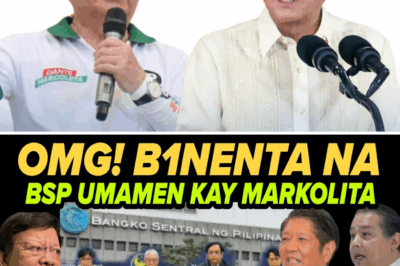On November 1st, while most Filipinos were spending All Saints’ Day with family, a different kind of ritual was taking place online — a ritual of misinformation. Across dozens of DDS-linked pages and troll accounts, coordinated posts appeared within minutes of each other, all pushing one story: that Sergeant Olly Gutesa, a supposed witness against powerful figures, was under threat — and that his “truth” was being silenced.
But beneath the drama, nothing about the story held up. The more it spread, the more obvious it became that the tale of Sergeant Gutesa was yet another carefully crafted product of the DDS fake news factory — designed to stir outrage, sow confusion, and protect political interests.

The Anatomy of a Lie
The operation began with an orchestrated post from Katy Bunag, a known DDS keyboard warrior. She claimed that “something” had happened to Gutesa, linking it to accusations he supposedly made against House Speaker Martin Romualdez. Within hours, former lawmakers Mike Defensor and Rodante Marcoleta picked up the narrative, giving it political weight.
Defensor, in his usual self-assured tone, declared that Gutesa was under the custody of the Philippine Navy or Marines. It sounded official — until the Navy itself spoke up. Their spokesperson swiftly denied any involvement, stating that Gutesa was never in their custody and that the Armed Forces do not engage in partisan politics.
That single denial shattered the foundation of Defensor’s statement. Suddenly, what was being painted as a matter of national intrigue began to look more like a fabricated circus act. The speaker who exposed the story described Defensor’s claim bluntly: “Kalokohan. Fake news. Nakakasira ng kredibilidad ng Navy.”
The Billion-Peso Bluff
But Defensor didn’t stop there. In another unbelievable twist, he alleged that Martin Romualdez owned 3,000 hectares of land in Forbes Park. The problem? The entire Forbes Park subdivision only measures about 250 hectares. Defensor’s math wasn’t just off — it was astronomical.
“How can you own more land than what exists?” the speaker asked sarcastically. “It’s like claiming to own all of Makati.”
This wasn’t just about numbers. It was about intent. By linking Romualdez to exaggerated wealth and land ownership, Defensor was trying to craft a narrative of corruption and greed — a classic DDS playbook tactic to poison public opinion through outrage and envy.
A Witness Built on Sand
As for Sergeant Olly Gutesa, his role in the story remains dubious. Touted as a “key witness,” Gutesa’s testimony reportedly involves unverified claims about money changing hands. But upon closer inspection, even that fell apart. The notary on his affidavit was allegedly fake. There was no first-hand evidence. No photos. No documents. Not even a timeline that made sense.
“He didn’t even see the transaction he’s talking about,” the speaker said. “It’s pure chismis.”
The implication was clear — Gutesa was less of a whistleblower and more of a prop. A pawn positioned in a political chess game, pushed forward for dramatic effect and discarded once his usefulness ran out.
The Real Threat to Gutesa
As rumors of an “attempt on Gutesa’s life” began circulating, the speaker dismissed them as yet another layer of manipulation. “If anything happens to Gutesa,” he said, “it won’t come from Romualdez or Saldico. It will come from those who planted him.”
It was a chilling but logical conclusion. If Gutesa’s testimony was fake and his story collapsing, then the only people with reason to silence him were those who needed him quiet — permanently.
The speaker cited an old Filipino saying: “Kung sino ang naglabas, siya rin ang magliligpit.” Whoever brought him out will be the one to clean up the mess.
That insight flipped the narrative on its head. Suddenly, the DDS storyline about a “heroic witness” under threat looked like a smokescreen for something far darker — a cover-up of their own fabrication.
Anjo Yllana’s Outburst
While the political fake news machine was in full swing, another name entered the controversy — actor Anjo Yllana. Once a beloved comedian and TV host, Yllana drew public ire after he questioned Senate President Tito Sotto’s charitable donations, demanding proof that Sotto really gave his salary to scholars.
The speaker didn’t mince words. He called Yllana a “kupal” — arrogant and hypocritical — and accused him of seeking attention after being unable to return to “Eat Bulaga.” “What’s your contribution to society?” he asked. “All you do is criticize people who actually help.”
Yllana’s comments were seen as another extension of the DDS pattern: attack the respected, sow distrust, and distract the public from more pressing issues.
The Bigger Picture
Behind all these theatrics, one truth stands out — fake news isn’t just random noise. It’s organized. Calculated. Strategic.
The DDS network thrives on volume and confusion. When dozens of accounts post the same lie simultaneously, casual readers assume it must be true. Over time, the repetition embeds falsehoods into the national conversation, creating division and distrust.
As the speaker concluded, “Habang binubuhat ng administrasyon ang bayan, may mga humihila pababa.” While the current administration is trying to lift the country up, these fake news peddlers keep dragging it down.
He urged Filipinos to look beyond sensational headlines, to question the motives behind viral posts, and to stop being used as tools in someone else’s political game.
“Every time you share a lie,” he said, “you’re not helping the country. You’re helping the people destroying it.”
The warning is stark — and timely. In a digital landscape where misinformation moves faster than truth, vigilance is no longer optional. It’s survival.
News
Ang High-Tech na Mansyon ni Alden: Bakit Ang Dream House ng Aktor ay Literally Katabi ng Bahay ni Kathryn Bernardo
Ang mundo ng showbiz ay isang entablado kung saan ang pangarap ay nagsasaling-wika sa katotohanan, at ang pag-ibig ay madalas…
Araw ni Bonifacio 2025: Ang Trillion Peso March, Pagtawag ni Catriona Gray sa Pananagutan, at Ang “Under Control” na Gulo sa Mendiola
Ang Araw ni Bonifacio, na ginugunita tuwing Nobyembre 30, ay tradisyonal na ginagamit bilang plataporma ng sambayanan upang ipahayag ang…
Ang Laban ng mga Mana: Eman vs. Jimwel Pacquiao – Sino sa mga Anak ni Manny Ang Hahawak sa World Title ng Boxing
Sa mundo ng professional boxing, ang pangalan ni Manny “Pacman” Pacquiao ay hindi lamang isang apelyido; ito ay isang simbolo…
Ginto, Bilyong Insertions, at Ang ICC Drama: Ang Naglalagablab na Katotohanan sa Likod ng Marcos Administration’s Sekreto
Ang pulitika sa Pilipinas ay muling nagliliyab, hindi dahil sa isang kakaibang celebrity gossip, kundi dahil sa mga seryoso at…
Ang Second Life sa Kabaong: Paano ang Isang Pari, na Dating Combat Medic, ang Nagbunyag ng Drug Smuggling at Nagligtas ng Buhay sa Gitna ng Libing
Ang buhay ay madalas na punong-puno ng pagbabago, at ang paghahanap ng layunin ay kung minsan ay matatagpuan sa mga…
Ang No-Fail Test ng Kabutihan: Paano ang Helicopter Crash ang Nagbunyag sa Tunay na Ugali ng Kasintahan at mga Empleyado ng Bilyonaryo
Ang tunay na yaman ay hindi nasusukat sa dami ng ari-arian o sa bigat ng bank account; ito ay matatagpuan…
End of content
No more pages to load












